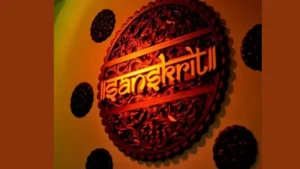Nestled in the heart of Uttar Pradesh, Varanasi, often referred to as Kashi, resonates with a rich cultural legacy and profound spiritual significance. Revered as Vishwanath Nagari, the city’s illustrious title reflects its deep-rooted spiritual heritage. Varanasi stands as a timeless emblem of spiritual enlightenment and cultural vibrancy, drawing pilgrims and seekers from across the globe. Its ancient alleys and sacred ghats embody the essence of India’s spiritual essence, making it a cherished destination for seekers of divine wisdom and cultural immersion.
Which City of Uttar Pradesh is Known as ‘Vishwanath Nagari’?
Varanasi, situated along the sacred banks of the Ganges River, stands as a testament to the timeless allure of Indian spirituality and tradition. Its labyrinthine alleys, bustling ghats, and ancient temples reverberate with the echoes of centuries past. Varanasi is not merely a city but a living embodiment of India’s spiritual essence, drawing pilgrims and seekers from across the globe.
Why Varanasi is known as Vishwanath Nagari?
The appellation “Vishwanath Nagari” stems from the illustrious Kashi Vishwanath Temple, nestled within the heart of Varanasi. The temple is dedicated to Lord Shiva, the Supreme Being in Hinduism, and is revered as one of the twelve Jyotirlingas—manifestations of the divine Linga of Lord Shiva. The name “Vishwanath” itself signifies the ‘Lord of the Universe,’ a fitting epithet for the presiding deity of this ancient city.
Vishwanath Nagari in Uttar Pradesh – Spiritual Significance
The significance of Varanasi as Vishwanath Nagari transcends mere religious devotion; it encapsulates a profound spiritual journey for millions of devotees and visitors annually. The Kashi Vishwanath Temple is not merely a place of worship but a sacred nexus where the earthly and divine realms converge.
Cultural Legacy and Beyond of Varanasi, the Vishwanath Nagari
Varanasi serves as a cradle of Indian civilization and philosophy, nurturing the intellectual and artistic pursuits of sages, scholars, and artisans through the ages. Its patronage of music, literature, and the performing arts has left an indelible mark on the cultural landscape of India, enriching the collective consciousness of humanity.




 Which Languages is known as the Mother o...
Which Languages is known as the Mother o...
 Which Country is known as the Highest Pr...
Which Country is known as the Highest Pr...
 Which Island is known as the Island of P...
Which Island is known as the Island of P...








